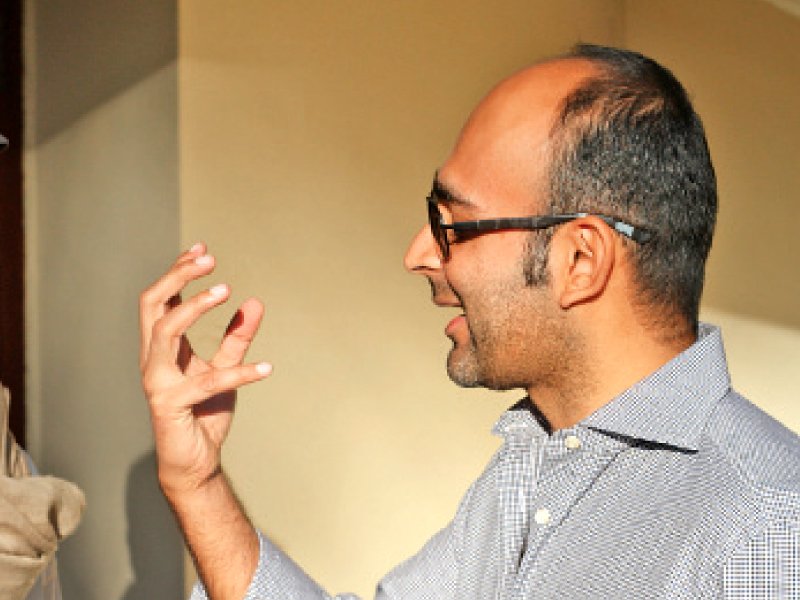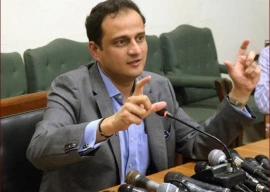
For an ex-McKinsey consultant, Mohsin Hamid does not appear to much like talking about money or economics.
Speaking at an event titled “How to get filthy rich in rising Asia: In Conversation with Mohsin Hamid” on the second day of the fourth Karachi Literature Festival, Mohsin Hamid and HM Naqvi turned what was supposed to have been a conversation about Hamid’s upcoming novel into a conversation between two novelists about literature, their own personal views on it and the way they practise their craft.
Perhaps it is fitting that the talk was so unexpected, because it appears that the novel itself is little like what its title promises. Hamid himself calls it “a book that pretends to be a self-help book”, and its first few lines borrow a routine from stand-up comedians to mock the very notion of a self-help book. (Only an excerpt of the first chapter was available at the festival: the book is due to be launched next month.)
Naqvi opened the conversation by asking Hamid about his unique narrative style. In the case of “How to get filthy rich in rising Asia” for instance, Hamid employs the tone of a narrator who is addressing the reader as if they were the protagonist, describing the story in an ever-so-mildly sardonic tone. Hamid revealed that he arrives at the final shape of his novels by simply trying to tell a story and then missing, going through several drafts before he arrives at the narrative structure that readers eventually see.
“I have always been fascinated by an aesthetic of leanness,” said Hamid. “And I have always been fascinated by architecture, the structure of a story, particularly modernist novel architecture.”
In some ways, more interesting about the book and talk was what was not said. The book, for instance, contains no names of places - or even characters, it seems. And the conversation contained no talk of a stereotypical, “Slumdog Millionaire”-style, rags-to-riches story.
“The story is about a place that may very well be like Lahore, but it will never say,” said Hamid. “I did not want to use brand names because I wanted the reader to be free to come up with their own perceptions of it. I think novels are much closer to video games than they are to movies because the reader has a much more active role to play in it.”
Then came a somewhat amusing reminiscence on the part of Hamid of having grown up with “choose your own adventure” books and having played “Dungeons and Dragons” (a role-playing board game), which he attributed to having influenced his thought process about what narratives and stories should be.
Published in The Express Tribune, February 17th, 2013.


1725443747-0/Untitled-design-(5)1725443747-0-165x106.webp)














COMMENTS
Comments are moderated and generally will be posted if they are on-topic and not abusive.
For more information, please see our Comments FAQ